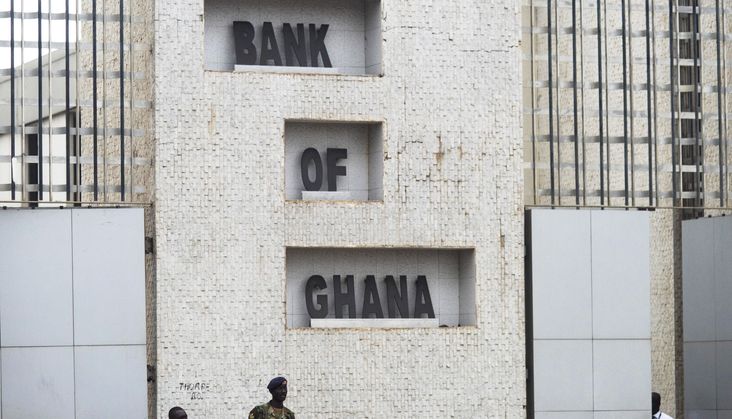The Bank of Ghana (BoG) has attributed its GH¢60 billion loss recorded in 2022 to the controversial Domestic Debt Exchange Programme (DDEP).
The Central Bank said the losses are not due to irresponsibility on its part.
The Director of Research at BoG, Dr Philip Abradu-Otoo made this claim in an interview with Citi FM on Tuesday, August 1.
According to him, the Domestic Debt Exchange Programme was necessary to prevent the total collapse of the Ghanaian economy.
“What we are seeing on the balance sheets of BoG is not as a result of reckless policy, or bad decisions but the direct impact from DDEP. We can say [BoG] policy has been sub-optimal.”
“Sub-optimal in the sense that we chose an action to save the economy from total collapse but as a result of the DDEP, it has landed us here,” he said.
Meanwhile, Dr Philip Abradu-Otoo said measures have been put in place to ensure that the Central Bank recover the losses.
“We need to recover this GH¢60 billion. The central bank would have to retain its profits. We are now going to ensure that we strictly retain all our profits. One other problem that created this situation was the fact that we need now to move towards optimising the returns from our portfolio. We manage our funds ourselves at the Bank of Ghana.
“And we need to ensure that we get a lot of returns. Above all, we need to ensure that we get capitalised as we move along the process. Those talks have started with the government and along the line, we expect some capitalisation from the government,” he added.
The Annual Report and Financial Statements of the Bank of Ghana showed it recorded a loss of ¢60.8 in 2022.
The Central Bank’s record loss is coming after it posted a ¢1.2 billion profit in 2021.
According to the Annual Report and Financial Statements, the loss is attributed to a decline in the Group’s net worth position due to the impact of the Domestic Debt Exchange Programme (DDEP) and impairment of some assets.
Again, its total liabilities and subsidiaries exceeded its total assets by ¢54.52 billion.
In 2021, the Central Bank recorded a surplus of ¢5.72 billion.
Latest Stories
-
Fuel tax U-turn reveals ‘trial-and-error governance’ – Minority
14 minutes -
Abu Kassim claims Women’s Coach of the Year at Ghana Football Awards
32 minutes -
Kwesi Appiah wins Men’s Coach of the Year at Ghana Football Awards
37 minutes -
Jerry Afriyie wins Odartey Lamptey Future Star Award at Ghana Football Awards
40 minutes -
NDC U-turn on Dumsor Levy exposes hypocrisy, says Afenyo-Markin
42 minutes -
Private schools celebrate inclusion in Free SHS initiative
44 minutes -
John Peter Amewu named Club CEO of the Year at 2025 Ghana Football Awards
46 minutes -
Israel-Iran conflict: We are not immune to fuel price shocks – Mahama warns
1 hour -
Dumsor Tax retreat is an admission of incompetence – Minority Leader fires government
1 hour -
We are not aligned with any political party – GRNMA fires back
2 hours -
Trump administration considers adding Ghana, 35 others to travel ban list
3 hours -
AI, automation, and the future of threat intelligence
4 hours -
Partey defends Kudus after challenging season at West Ham
4 hours -
Police arrest man with 40 parcels of suspected narcotics on Accra-Somanya highway
5 hours -
Joy Prime to premiere “PrimeTime” with George Quaye on June 18
7 hours

